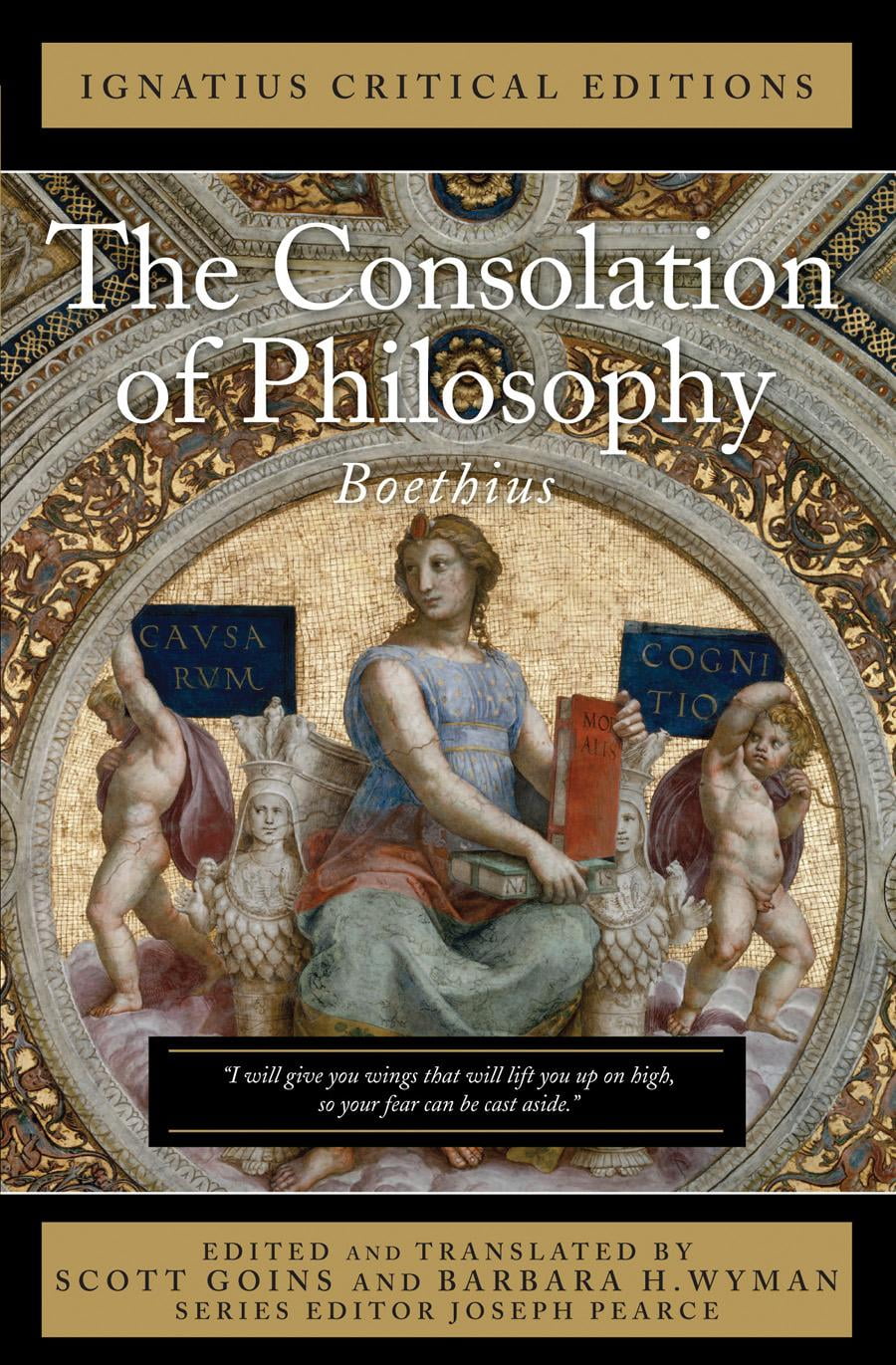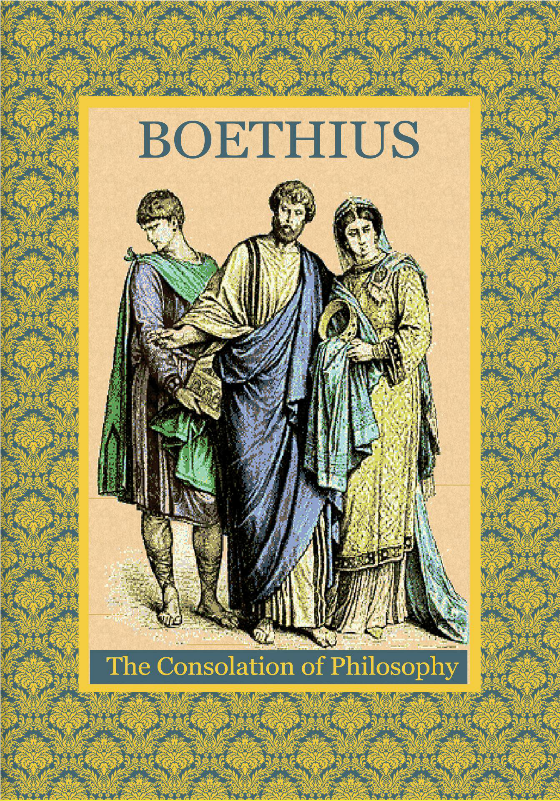

Book I: Boethius laments his imprisonment before he is visited by Philosophy, personified as a woman.

On the Consolation of Philosophy is laid out as follows: On human nature, Boethius says that humans are essentially good, and only when they give in to "wickedness" do they "sink to the level of being an animal." On justice, he says criminals are not to be abused, but rather treated with sympathy and respect, using the analogy of doctor and patient to illustrate the ideal relationship between prosecutor and criminal.

He speaks about the nature of free will and determinism when he asks if God knows and sees all, or does man have free will. She contends that happiness comes from within, and that virtue is all that one truly has because it is not imperiled by the vicissitudes of fortune.īoethius engages with the nature of predestination and free will, the problem of evil, human nature, virtue, and justice. Philosophy consoles Boethius by discussing the transitory nature of fame and wealth ("no man can ever truly be secure until he has been forsaken by Fortune"), and the ultimate superiority of things of the mind, which she calls the "one true good".

In 1891, the academic Hugh Fraser Stewart described the work as "by far the most interesting example of prison literature the world has ever seen." īoethius writes the book as a conversation between himself and a female personification of philosophy. This experience inspired the text, which reflects on how evil can exist in a world governed by God (the problem of theodicy), and how happiness is still attainable amidst fickle fortune, while also considering the nature of happiness and God. Boethius was at the very heights of power in Rome, holding the prestigious office of magister officiorum, and was brought down by treachery. On the Consolation of Philosophy was written in AD 523 during a one-year imprisonment Boethius served while awaiting trial-and eventual execution-for the alleged crime of treason under the Ostrogothic King Theodoric the Great. Boethius' Consolation heavily influenced the philosophy of late antiquity, as well as Medieval and early Renaissance Christianity. Written in 523 while he was imprisoned by the Ostrogothic King Theodoric, it is often described as the last great Western work of the Classical Period. On the Consolation of Philosophy ( Latin: De consolatione philosophiae), often titled as The Consolation of Philosophy or simply the Consolation, is a philosophical work by the Roman philosopher Boethius.


 0 kommentar(er)
0 kommentar(er)
